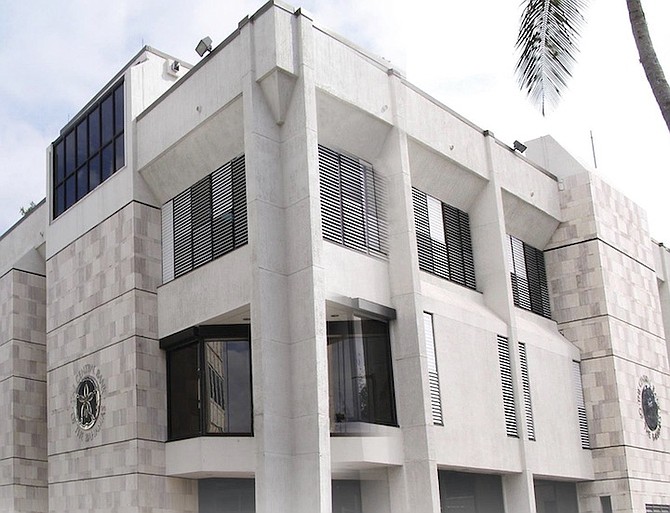By NEIL HARTNELL
Tribune Business Editor
nhartnell@tribunemedia.net
The Central Bank has told its commercial bank and other licensees to stop sending clients seeking to recover dormant accounts directly to it as such applications must come from the institutions itself.
Karen Rolle, the regulator’s inspector of bank and trust companies, in her 2023 third quarter letter to the industry said these inquiries must be initiated by financial institution’s on the client’s behalf. “There continues to be room to clarify the administrative processes around dormant funds. The Central Bank is still receiving occasional inquiries, where banks have referred customers directly to the Central Bank to recover or investigate the existence of funds,” she said.
Noting that bank accounts are classified as “dormant” after seven years of inactivity, under the Banks and Trust Companies Regulations Act 2020 and the Guidelines for the Administration and Ultimate Disposition of Dormant Bank Accounts, she added: “At this time, these funds are to be submitted to the Central Bank of The Bahamas, where they are held for an additional ten years before remittance to the Public Treasury.
“However, where dormant claims or inquiries are initiated, these must be made by the submitting banks on behalf of their clients. In instances where the banks transferred ownership or were dissolved, the administration of the transferred dormant funds are to be transferred to the acquiring bank or liquidator, also preserving the chain of responsibility for future claims.”
Ms Rolle continued: “In accordance with the guidelines, all dormant funds claim forms must be accompanied with a cover letter, which should include the full settlement instructions of the bank (not the client). The cover letter should also include a contact, the amount of the claim and the client’s account number....
“Once the documents are received and reviewed, the Central Bank will process the claim and return the funds to the respective bank for issuance to the client. Banks are encouraged to ensure that their clients are properly advised that all claims are to be submitted on their behalf. The Central Bank does not issue claimed dormant funds directly to the banks’ customers.”
The Central Bank, in its 2022 annual report, revealed: “As at December 31, 2022, the Bank maintained custody of 41,878 dormant facilities with balances totalling $89m denominated in six currencies. Balances in US dollars and Bahamian dollars combined accounted for a dominant 91.4 percent of the total, while the Canadian dollar, Swiss franc, Euro and British pound accounted for the remaining 8.6 percent.
“In accordance with the Act, as at December 31, 2022, an estimated $1.9m in dormant funds was due for remittance to the Government against the applicable ten-year custodial period expiration.” Elsewhere, Ms Rolle said the Government and financial services regulators are progressing towards signing a Memorandum of Understanding (MoU) that would create a Financial Stability Council.
“The Central Bank, in collaboration with the Ministry of Finance, the Securities Commission, the Insurance Commission and the Deposit Insurance Corporation, is making progress towards the establishment of a Financial Stability Council.,” she wrote. “A Memorandum of Understanding is being finalised to complete the arrangements.
“The Council would be a non-statutory body to monitor emerging risks to financial stability in The Bahamas, and ensure that there is timely communication and co-ordination during both normal times and episodes of systemic crises.
“The multi-agency co-operation will also help to strengthen the analytical framework for the existing financial stability report, particularly with respect to more comprehensive data coverage, the interconnectedness with the regulated sub-sectors, vulnerabilities and threats to financial stability.”
Ms Rolle added that the Central Bank is “poised to release” final Digital Assets Guidelines, which outline the Central Bank’s expectations for exposure to digital asset activities and identification of accepted best practices for effective risk management.
“To be clear, the guidelines do not diminish the legal and regulatory standards enforced by the Securities Commission for engagement in such activities, including, where additional licensing requirements are mandated,” she said.





Comments
ExposedU2C 2 years, 4 months ago
What a government rip off !!
observer2 2 years, 4 months ago
My experience is that an account goes "inactive" after 6 months of no activity.
At that time the account "disappears" off the online banking system.
This is frightening because the banks don't send out statements due to non functional postal system.
So we she as time progresses more and more accounts will be in essence "confiscated" because no one will know they existed especially if the account owners pass away.
Sign in to comment
OpenID